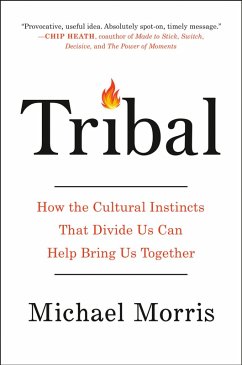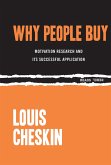A renowned Columbia Business School professor and cultural psychologist explains the deep roots of tribalism--and how great leaders harness our tribal psychology to move people and change cultures for the better. We've all heard pundits bemoan the rise of tribalism, but few have offered answers about how to manage our tribal psychology to create positive change. Now pioneering cultural psychologist and acclaimed Columbia Business School professor Michael Morris decodes tribalism in this erudite but accessible and hopeful book. Ours is the only species that lives in tribes, groups glued together by their distinctive cultures that can grow to a scale far beyond kith and kin. Morris argues that our psychology is wired by evolution in three distinctive ways to enable this. First, the peer instinct to mesh with those around us, to conform to what most people do. Second, the hero instinct to give to the group, to emulate those who are most respected. Third, the ancestor instinct to maintain tradition, to follow the ways of prior generations. These tribal instincts enable us to form shared goals and work as a team, to acquire specialized skills and innovate to improve them, and to transmit the accumulated pool of cultural knowledge onward to the next generation. Countries, churches, political parties, and companies are tribes, and tribal instincts explain our loyalties to them and the hidden ways that they affect our thoughts, our actions, and our identities. Rather than deriding tribal impulses for their irrationality, great leaders tap into them. For example, Lee Kuan Yew used government officials' peer instinct to cleanse the Singaporean port of corruption. Sallie Krawcheck leveraged hero instincts to fix the strained merger between patrician Merrill Lynch and plebian Bank of America. Coaches of dynastic sports teams like the NBA's Golden State Warriors and New Zealand rugby's All Blacks rouse ancestor instincts to lead their teams to glory. The most powerful way to move people is through their ties to tribes. Policymakers across the world have tapped into these instincts to reduce unhealthy habits of consumption, promote environmental conservation, and tackle many other problems that had resisted previously attempted remedies. And managers, teachers, and activists have channeled them to transform organizations. By weaving together deep research, current and historical events, and stories from business and politics, Morris offers a counterintuitive twist to how we think about tribalism, giving us the tools to address our own tribes in a new light.
Dieser Download kann aus rechtlichen Gründen nur mit Rechnungsadresse in A, B, BG, CZ, D, DK, EW, E, FIN, F, GR, HR, H, I, LT, L, LR, NL, PL, P, R, S, SLO, SK ausgeliefert werden.









